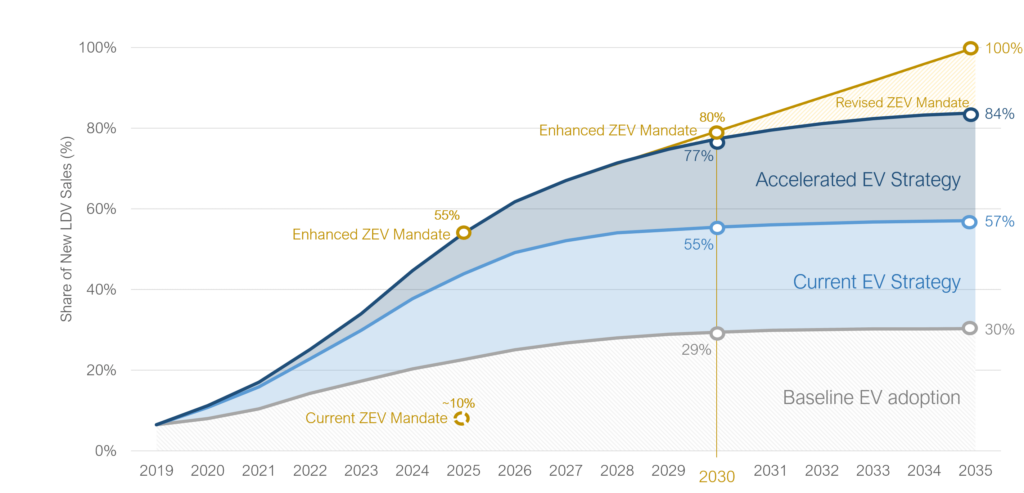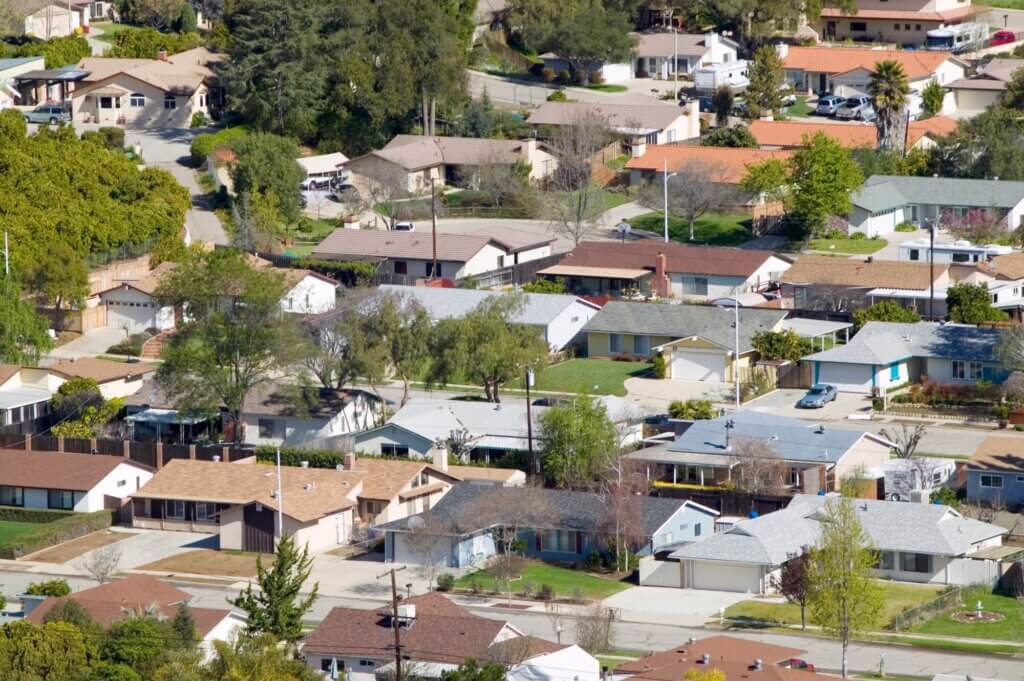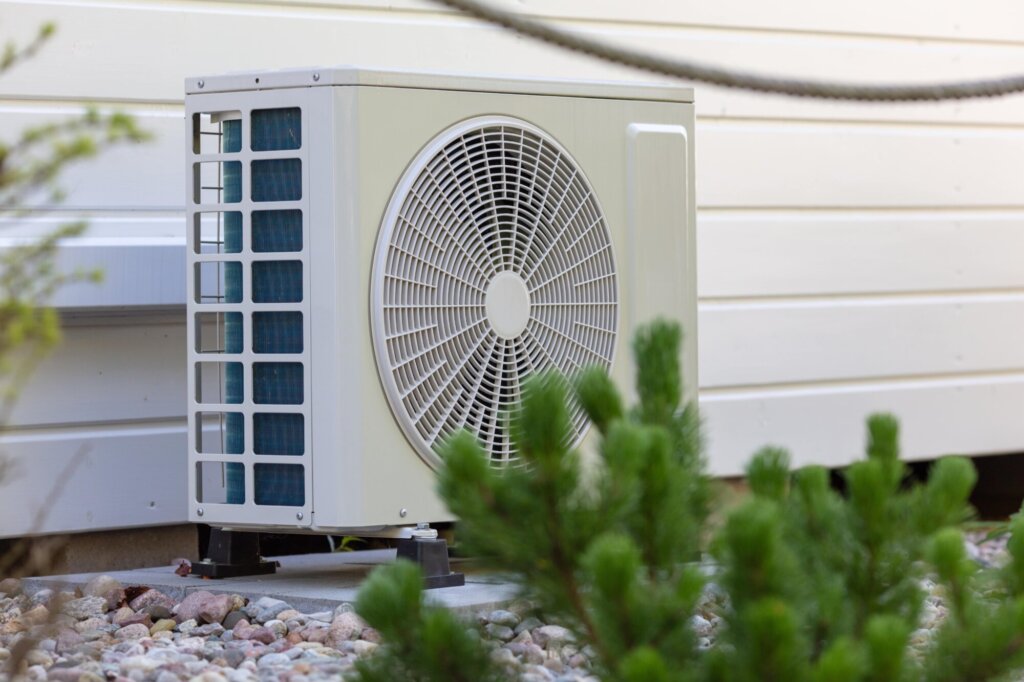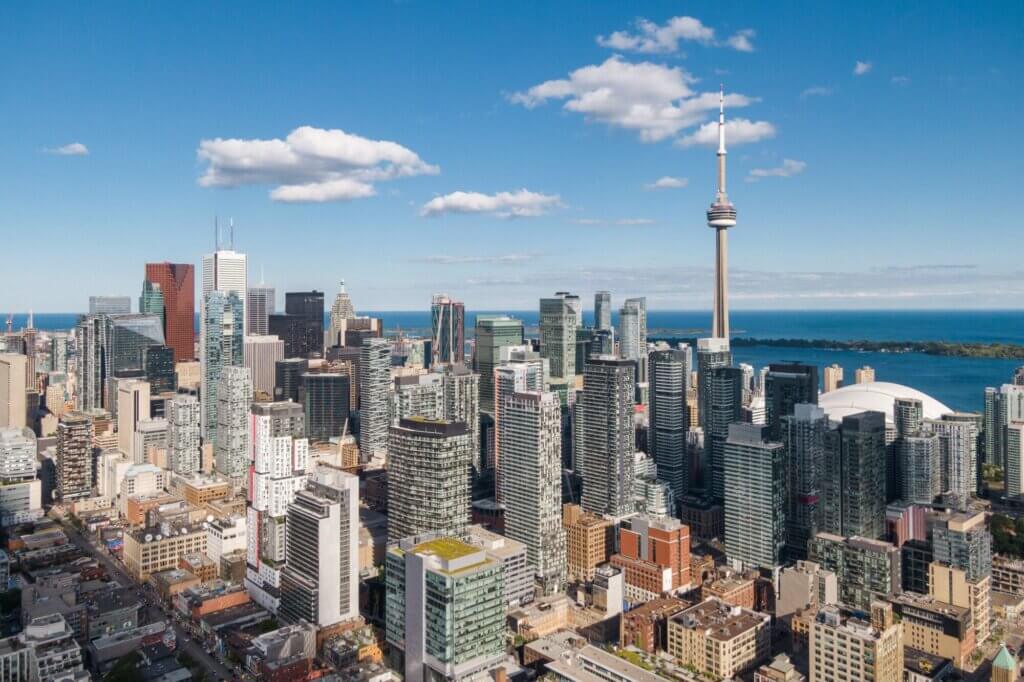Dunsky Supports Quebec’s Ambitious Electrification and Climate Plan

On November 16, the Government of Québec released its Plan for a Green Economy 2030, with electrification of mobility and decarbonisation of heating its central pillars. As Chair of the government’s Working Group on Electrification, our President Philippe Dunsky and our firm are proud to see the crux of our recommendations at the Plan’s core. Although the Plan covers a range of clean energy initiatives, two highlights for clients to be aware of include an ambitious, legislated phase-out of internal combustion engine (ICE) light-duty vehicles, as well as a mandate to slash GHG emissions from building heating by 50% by 2030. Specifically:
ICE Vehicle Phase-out / 100% ZEV Mandate by 2035
Following a feasibility study it commissioned from Dunsky, which included detailed modelling of EV adoption scenarios for the province (using our EVATM scenario and forecast model), Québec announced its intent to enhance its existing Zero Emission Vehicle (ZEV) legislation in the new year. The enhanced ZEV mandate will require automakers to progressively increase the share of electric vehicles they sell in the province, culminating in 100% of new light-duty vehicle sales being either fully-electric (BEV) or plug-in hybrid (PHEV) by 2035.
The chart below, taken from Dunsky’s detailed analysis for the Quebec government, provides our modelling results for multiple market-enhancing scenarios. Results account for future ZEV vehicle availability, charging infrastructure accessibility, driving range requirements, consumer concerns and preferences, future battery and vehicle costs, and a range of other factors. It includes the 2035 ZEV mandate scenario that was ultimately retained:

The Government also announced its intent to expand the ZEV mandate law to encompass medium and heavy-duty vehicles, a measure our firm recently recommended in another project. In addition, the Province will set legislation that will see the electrification of 55% of city buses and 65% of school buses by 2030. Together, these initiatives will place Québec firmly among clean mobility leaders in North America and internationally.
50% Reduction in GHGs for Heating Buildings (by 2030)
In the building sector, where electrification can play a significant role but where costly peak demand impacts loom large, the Government has tasked the primary electric and gas utilities to achieve 50% GHG reductions from 1990 levels by 2030.
The utilities – namely state-owned Hydro-Québec and Énergir – are tasked with working together to propose an optimized approach to achieving this goal, one that minimizes costs for consumers and society. The approach will likely include a combination of heat pumps, renewable natural gas, and conventional natural gas. In addition, the Green Economy Plan includes an almost-immediate ban on new oil-based heating systems. It also provides for a significant improvement in energy efficiency, both through program enhancements and more stringent building codes. Dunsky has and continues to support many of these initiatives.
We look forward to continuing our work supporting Québec’s government, electric and gas utilities, municipalities large and small, and others, to ensure this Plan is a resounding success. If you have questions about how the Plan for a Green Economy may impact your business, or are interested in considering how these and similar measures might be adapted to your province, state or municipality, please contact us at info@dunsky.com.
Related Projects
- Read more about California Approves Tariff On-Bill Pilot Informed by Dunsky Analysis
California Approves Tariff On-Bill Pilot Informed by Dunsky Analysis
December 4, 2025
The California Public Utilities Commission (CPUC) has approved Southern California Edison Company’s Tariff On-Bill (TOB) Pilot, authorizing $7.19 million to…

- Read more about Implementing Energy-Efficient Upgrades in Manufactured Homes
Implementing Energy-Efficient Upgrades in Manufactured Homes
August 27, 2025
Manufactured homes are a small segment of the housing stock, but they represent a critical one for achieving a just…

- Read more about Toronto Hydro and Dunsky Help Enable Customer Clean Energy Projects Through Cleantech Services Network
Toronto Hydro and Dunsky Help Enable Customer Clean Energy Projects Through Cleantech Services Network
July 3, 2025
Barriers to undertaking clean energy projects are not just financial. A significant barrier for residential and commercial building owners to…
